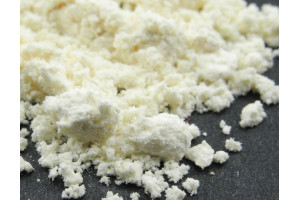Challenging the Concept of 'Substances': An In-Depth Look at Recreational Drug Use Among American Young Adults
Young adulthood is a phase marked by exploration, experimentation, and self-discovery. It's also a time when many individuals engage in recreational pharmaceutical use, colloquially known as "drug use." In this article, we will delve into the complex world of recreational drug use among young adults in the United States. We will scrutinize the concept of 'drugs,' shedding light on the cultural and social aspects surrounding this phenomenon.
Table of Contents
- Defining Recreational Pharmaceutical Use
- Prevalence of Recreational Pharmaceutical Use Among Young Adults
- The Cultural Aspect of Drug Consumption
- Motivations Behind Recreational Drug Use
- Social and Peer Influences
- The Role of Media and Pop Culture
- Consequences of Recreational Pharmaceutical Use
- The Impact on Mental and Physical Health
- Legal and Ethical Implications
- Harm Reduction Strategies
- Rehabilitation and Treatment Options
- Conclusion
- FAQs on Recreational Drug Use
- Get Access Now
Defining Recreational Pharmaceutical Use
Let's start by defining recreational pharmaceutical use. It refers to the voluntary consumption of substances for their mind-altering effects, often in a social or recreational context. These substances can include alcohol, marijuana, prescription medications, and illicit drugs.
Prevalence of Recreational Pharmaceutical Use Among Young Adults
The prevalence of recreational drug use among young adults in the US is a matter of concern. Various studies have shown that a significant portion of this demographic engages in such behavior, often due to peer pressure, curiosity, or a desire to escape life's stresses.
The Cultural Aspect of Drug Consumption
Understanding recreational drug use requires us to acknowledge its deep-rooted cultural aspects. Culture plays a pivotal role in shaping attitudes and behaviors surrounding drugs, whether it's the celebration of alcohol in social gatherings or the normalization of marijuana use.
Motivations Behind Recreational Drug Use
Young adults often turn to recreational drugs for various reasons, such as seeking euphoria, relaxation, or an altered state of consciousness. However, understanding the motivations behind drug use is essential for addressing the issue effectively.
Social and Peer Influences
Peer pressure significantly influences the initiation of recreational drug use among young adults. Friends and social circles often exert strong influences on an individual's decision to experiment with drugs.
The Role of Media and Pop Culture
Media and pop culture also contribute to shaping perceptions of drug use. Movies, music, and celebrity endorsements can either glamorize or trivialize substance consumption, making it seem more socially acceptable.
Consequences of Recreational Pharmaceutical Use
The consequences of recreational drug use are far-reaching. They can impact an individual's mental and physical health, relationships, and even legal standing. The risks involved are often underestimated or ignored by those partaking in such activities.
The Impact on Mental and Physical Health
Drug use can have detrimental effects on both mental and physical health. It can lead to addiction, mental health disorders, and long-term physical ailments.
Legal and Ethical Implications
The legality and ethics of recreational drug use are complex. While some substances are legal, others are not, and their use can lead to criminal charges, raising ethical questions about personal freedom and societal well-being.
Harm Reduction Strategies
To address the issue of recreational drug use, harm reduction strategies are crucial. These strategies focus on minimizing the negative consequences of drug use and providing support to those who engage in it.
Rehabilitation and Treatment Options
For those who wish to overcome drug addiction, rehabilitation and treatment options are available. These programs aim to help individuals break free from the cycle of drug dependency.
Conclusion
In conclusion, the cultural assessment of recreational pharmaceutical use among young adults in the US reveals a complex and multifaceted issue. Understanding the cultural, social, and individual factors that influence drug use is essential for developing effective prevention and intervention strategies.
FAQs on Recreational Drug Use
- Is recreational drug use limited to illegal substances?
Recreational drug use can involve both legal and illegal substances. It encompasses a wide range of substances, including alcohol, marijuana, prescription medications, and illicit drugs. - What are some signs of recreational drug use in young adults?
Signs can include changes in behavior, social withdrawal, neglect of responsibilities, and physical symptoms like bloodshot eyes or mood swings. - How can one approach a friend or family member who may have a drug problem?
Approach them with empathy and concern. Offer support and encourage them to seek professional help if needed. - Are there safe ways to use recreational drugs?
While there is no completely safe way to use mind-altering substances, harm reduction strategies can help minimize risks. - What resources are available for individuals seeking help with drug addiction?
Many resources are available, including counseling, support groups, and rehabilitation centers. It's essential to seek professional guidance.

